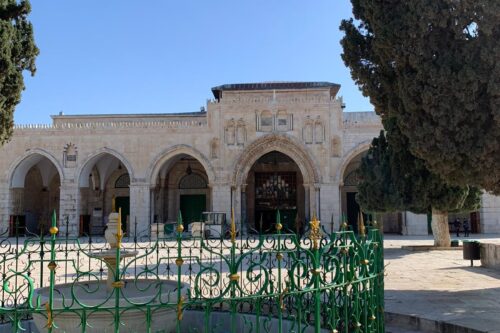A water crisis in Lebanon’s Palestinian refugee camps
Lebanon began hosting Palestinian refugees following the Nakba (catastrophe) in 1948. Seventy years on, there are 12 refugee camps across the country now hosting up to half a million Palestinians. A lack of clean, safe drinking water is one of the biggest concerns facing Palestinians in the refugee camps- that’s half a million people without access to one of the most basic needs for survival.
Water pollution
Groundwater, which is one of the main sources of water in Lebanon, has been heavily polluted by untreated wastewater, plastic pollutants, pesticides and salt from the country’s coastal regions. Up to 40% of all Lebanon’s sewage runs untreated into water sources. Tap water in Lebanon’s refugee camps is too salty to drink, has a foul smell, and is even known to rust metal cutlery after just half an hour of exposure.
Inadequate sewage systems
Sewage and drainage systems across the refugee camps are old and overloaded. Up to 75% of refugees do not have access to sanitation facilities and open sewage can often be seen running through the camps’ alleyways. Not only does this damage the environment- more than 200,000 cubic meters of untreated sewage water is poured in to the sea every day- it is also a major cause of water borne disease outbreaks, particularly among children.
Overpopulation
The ongoing Syria crisis has led to more than 1 million people fleeing to Lebanon for safety. As a result, already overcrowded refugee camps are struggling to cope with the increased demand of water supply, pushing water systems to breaking point and increasing the spread of diseases, especially during the warmer months.
Forced to buy water
Palestinian refugees are forced to buy unregulated drinking water from local vendors. With more than 60% of the Palestinian refugee population in poverty, the cost of water is often too high for many, pushing families into further poverty and insecurity. The safety of the water that they buy from vendors is not guaranteed, is often found to be contaminated, and is putting the lives of the most vulnerable at even more risk.
How you can help
Donating to our water projects can help ensure that thousands of Palestinian families have access to clean water and sanitation. To learn more about our Water Aid packages, give us a call on 020 8961 9993 or visit interpal.org .
#PalestineFacts
Calculate your Zakat
Confused about how to calculate your Zakat? Try our simple-to-use calculator

![A Palestine protest in London on May 15th 2021 [Ehimetalor Akhere Unuabona / Unsplash]](http://www.interpal.org/wp-content/uploads/2024/08/ehimetalor-akhere-unuabona-33W7GNRkUA0-unsplash-500x333.jpg)
![Scenes of the destruction that befell the besieged city of Gaza after it was bombed by Israel in its war since October 7, 2023 [Emad El Byed / Unsplash]](http://www.interpal.org/wp-content/uploads/2024/08/emad-el-byed-uHMDmEa3TX4-unsplash-500x333.jpg)
![A Palestinian artist paints a mural drawing depicting the Dome of the Rock Mosque in Gaza city on July 25, 2017 [Ashraf Amra / ApaImages]](http://www.interpal.org/wp-content/uploads/2018/03/250717_ASH_00-9-500x333.jpg)

